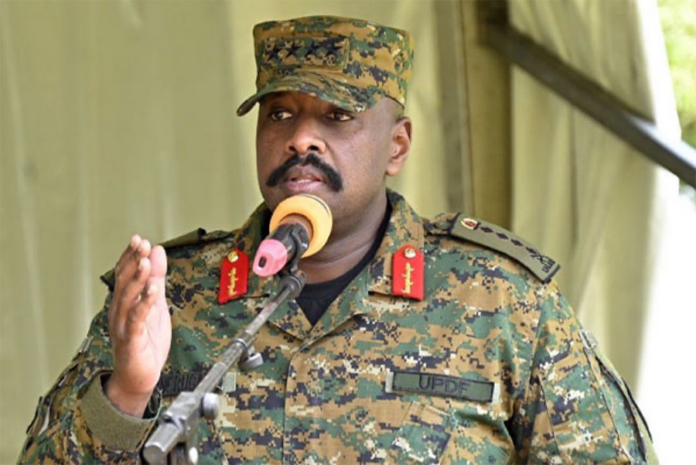In a recent public statement, General Muhoozi Kainerugaba, the son of Uganda’s President Yoweri Museveni and a prominent figure in the Ugandan military, issued a stern directive to arrest any opposition member wearing military-like uniforms. The statement, which has raised significant concern both locally and internationally, was made shortly after General Muhoozi deactivated his X (formerly Twitter) account, sparking speculation regarding his motivations and the implications of his message.
General Muhoozi Kainerugaba, the Senior Presidential Advisor for Special Operations, called for the immediate arrest of opposition members who are found donning military-style clothing. “Arrest on the spot any opposition member wearing military-like uniforms!” he commanded, sending a clear message that such individuals would face swift legal action.
The directive comes at a time when tensions between the Ugandan government and opposition groups are running high. The opposition, including prominent figures such as Bobi Wine and other activists, have often criticized the government’s handling of political freedoms, human rights, and the rule of law. This latest statement from Gen. Muhoozi has added fuel to the ongoing debate about political freedoms and the government’s approach to dissent.
This directive follows General Muhoozi’s deactivation of his X account, which he had used to make bold and controversial statements in the past. His sudden departure from the platform has raised questions about whether his actions were in response to criticism or whether he was attempting to distance himself from his previous comments. His decision to issue such a directive, however, is seen as a significant escalation of his role in Uganda’s political discourse, particularly as it relates to the opposition.
In Uganda, the wearing of military-style uniforms by civilians is often associated with political activism, particularly by opposition members who challenge the ruling regime. The Ugandan military, led by President Museveni and his family, has a long-standing history of involvement in the country’s politics, and any hint of opposition members mimicking military dress is seen as a threat by the government.
International human rights organizations and foreign governments have condemned the directive. Critics argue that the order infringes upon basic civil liberties, including the right to free expression and the right to peaceful assembly. Human rights advocates fear that this could lead to a further crackdown on opposition activities and increased political repression in Uganda.
In particular, the directive has been viewed as a potential escalation in the government’s ongoing campaign to suppress opposition leaders and their supporters. Many observers believe that the move could lead to increased tensions and possibly violence between government forces and opposition groups.
Gen. Muhoozi Kainerugaba’s recent directive has stirred significant controversy, with implications for Uganda’s political future. As the country faces increasing challenges related to political freedoms and government control, it remains to be seen how the situation will evolve. The international community is closely monitoring the developments, and many are calling for restraint and dialogue to address the growing tensions in Uganda’s political environment.
























